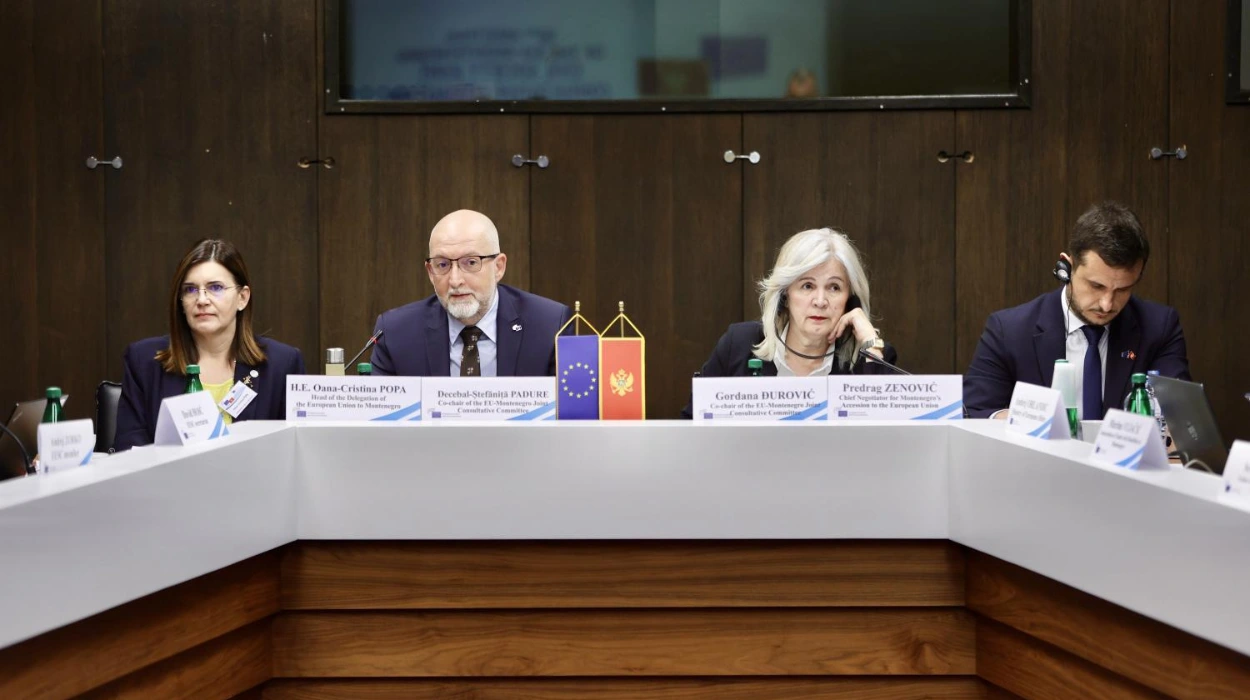Europe (Transatlantic Today)— The 18th meeting of the EU-Montenegro Joint Consultative Committee (JCC), held in Podgorica, reaffirmed Montenegro’s strong commitment to EU membership by 2028. The meeting emphasized the importance of meeting interim benchmarks for the rule of law as a critical milestone in the EU accession process.
The Interim Benchmark Assessment Report (IBAR) for the rule of law is set to be crucial in the coming months. A positive outcome by June would allow Montenegro to close other chapters of its accession negotiations, significantly advancing its EU path.
Co-chairs of the JCC, Decebal-Ștefăniță Padure from the European Economic and Social Committee (EESC) and Gordana Đurović from the Montenegrin Pan-European Union, both highlighted the role of civil society in monitoring the process and submitting valuable recommendations. Padure stressed the need for political maturity and institutional stability to ensure further progress, urging that Montenegro’s civil society be involved in every step of the negotiation process.
Gordana Đurović also called on stakeholders to expedite efforts to secure the Commission’s positive report by June, warning that delays on critical reforms, such as electoral and judicial changes, could jeopardize Montenegro’s progress. “The EU remains Montenegro’s most important foreign policy goal,” stated Dr. Predrag Zenović, Montenegro’s chief negotiator with the EU, emphasizing the country’s determination to become the 28th EU member.
EU Ambassador to Montenegro, Oana Cristina Popa, commended the involvement of civil society and welcomed the recent stability that has enabled Montenegro to prioritize EU integration. She stressed that Montenegro’s progress could serve as an inspiration to neighboring countries in the region.
At the conclusion of the meeting, a Joint Declaration was adopted, which will be presented to various EU bodies, including the European Commission and the Government of Montenegro.
Montenegro’s EU membership remains a national priority, with broad support from civil society, as the country aims to meet key milestones on its path to full EU membership.


























